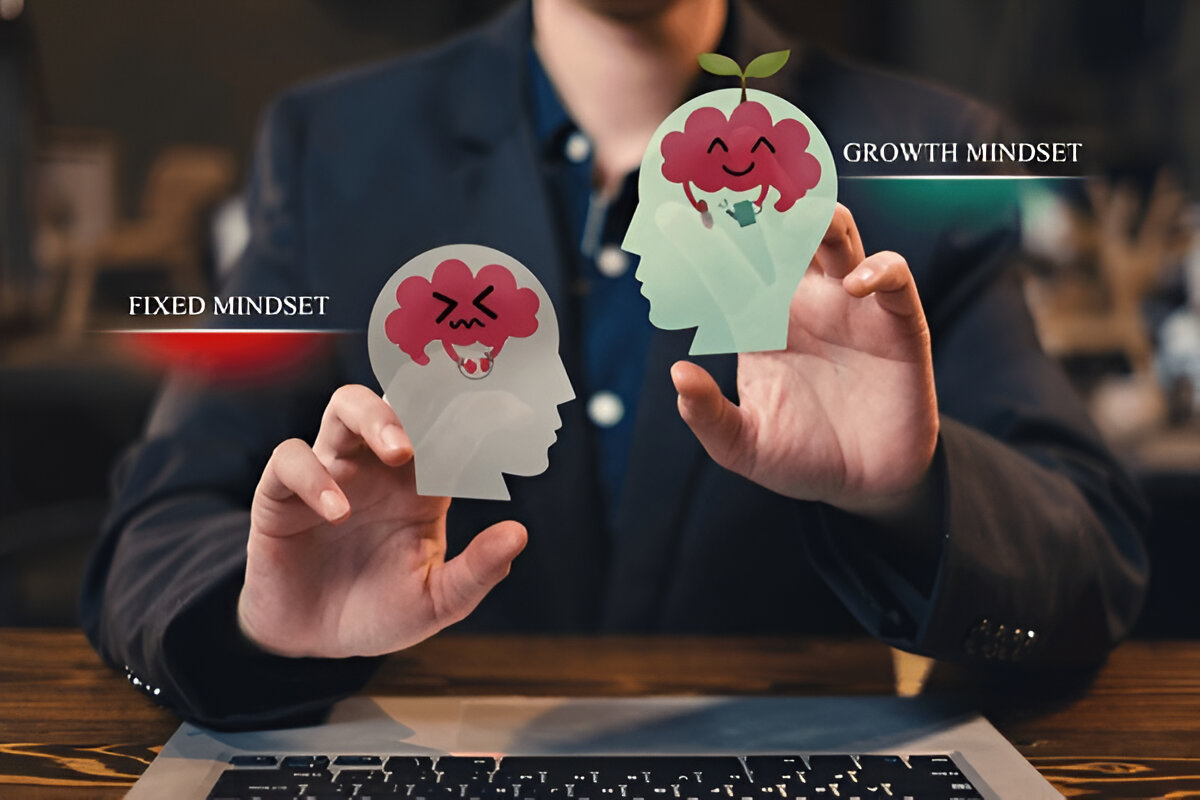We’ve all had moments when we thought, “I’m just not good at this”—whether it was math homework in school, a failed business idea, or an awkward first attempt at playing guitar.
But the way you respond to those moments says more about your mindset than your actual ability.
That’s where psychologist Carol Dweck’s groundbreaking work on fixed and growth mindsets comes in. Understanding these two mental frameworks can completely change how you approach learning, challenges, and even failure.
What Is a Fixed Mindset?
A fixed mindset is the belief that abilities, intelligence, and talents are set in stone. If you’re “good” at something, it’s because you were born that way. If you’re “bad” at something… well, too bad.
People with a fixed mindset tend to:
- Avoid challenges to protect their ego.
- Give up quickly when things get hard.
- See effort as pointless if you’re not naturally talented.
- Feel threatened by other people’s success.
Example:
“I’m terrible at public speaking. I’ve never been confident in front of people, so there’s no point trying.”
What Is a Growth Mindset?
A growth mindset is the belief that abilities and intelligence can be developed through effort, learning, and persistence.
People with a growth mindset tend to:
- Embrace challenges as opportunities to improve.
- See effort as the path to mastery.
- Learn from criticism rather than take it personally.
- Find inspiration in other people’s success.
Example:
“I’m not great at public speaking yet, but if I practice and get feedback, I can get better.”
How to Spot Your Own Mindset
Most people aren’t purely fixed or purely growth-oriented. Mindset can shift depending on the area of life you’re looking at. You might have a growth mindset in your career but a fixed mindset about your athletic ability.
Here are a few questions to ask yourself:
- Do I avoid new challenges because I’m afraid of looking bad?
- When I fail, do I think, “I’m just not cut out for this” or “What can I learn from this?”
- Do I see effort as a sign I’m not talented, or as a necessary part of progress?
- Do I feel jealous or inspired when I see someone succeed?
Why This Matters
Your mindset shapes your choices, which shape your results, which reinforce your mindset. It’s a loop—one that can keep you stuck or help you grow.
If you believe your abilities are fixed, you’re less likely to try, and less likely to improve.
If you believe you can grow, you’re more likely to put in effort, learn, and eventually succeed.
How to Shift Toward a Growth Mindset
- Add “Yet” to Your Vocabulary
Instead of saying, “I can’t do this”, say, “I can’t do this yet.” - Focus on Process, Not Just Outcome
Celebrate effort, strategies, and persistence—not just results. - Embrace Mistakes as Data
Failure isn’t a verdict—it’s feedback. - Surround Yourself With Growth-Minded People
The people you spend time with influence the way you think.
Final Thought
Your mindset isn’t permanent. Ironically, believing it can change is the first step toward changing it. Start small, challenge your “fixed” thoughts, and remember—growth is a lifelong process.




